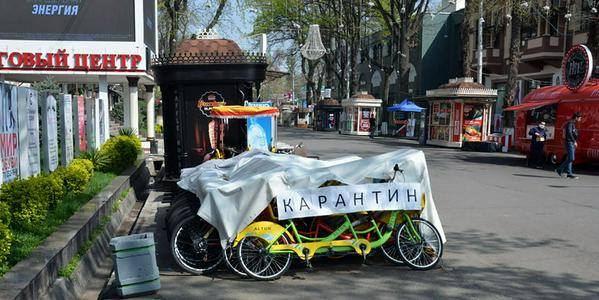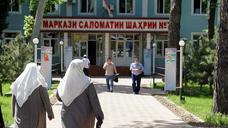Labour migrants from Tajikistan transferred around $3bn home from Russian in 2019, the Russian ambassador to Tajikistan Igor Lyakin-Frolov has stated, according to a report by Sputnik.
The ambassador said that since “according to various accounts, around one million Tajiks are working in Russia”, “in 2019 the total transfer sum will be as high as $3 billion”.
By way of comparison, in 2018 $2.5bn was transferred. The total state budget of Tajikistan in 2019 came to $2.5bn; in other words, migrant workers’ cash injection into Tajikistan this year exceeds the country’s budget.
“These transfers play a positive role in the Tajik economy,” the diplomat added. “Our countries have an interest in ensuring that cooperation in the sphere of migration takes on a long-term and mutually beneficial character,” Lyakin-Frolov said, noting that the volume of trade between the two countries for the current 12-month period will come to over $1bn.
Reviewing the country’s economic performance over the last year, the Tajik authorities point to solid economic growth. The Ministry of Economic Development and Trade is sure that the country’s real GDP growth rate for 2019 will meet the government target of $7.6bn (last year the country’s GDP was 68.8bn Somoni, or $7.3bn).
The Ministry claims that economic development has come from a real increase in industrial and agricultural output, yet experts are of the opinion that the growth in GDP has largely been sustained by migrant workers’ cash transfers, and that new regulations concerning transfers may lead to a reduction in this cash flow, which will have an adverse impact upon the whole of the country’s economy.
Difficulties with sending and receiving money transfers in Tajikistan began at the start of December following the launch of a new National Processing Centre (NPC) in the country. The new regulations led to the withdrawal of the money transfer systems MoneyGram, Zolotaya Korona and Blizko from the Tajik market.
Bank workers complain of system failures and freezes which mean that operations that should take 2-3 minutes can drag on for half an hour. The National Bank of Tajikistan has declared that the NPC is working “properly” and blamed commercial banks for the reported problems.










